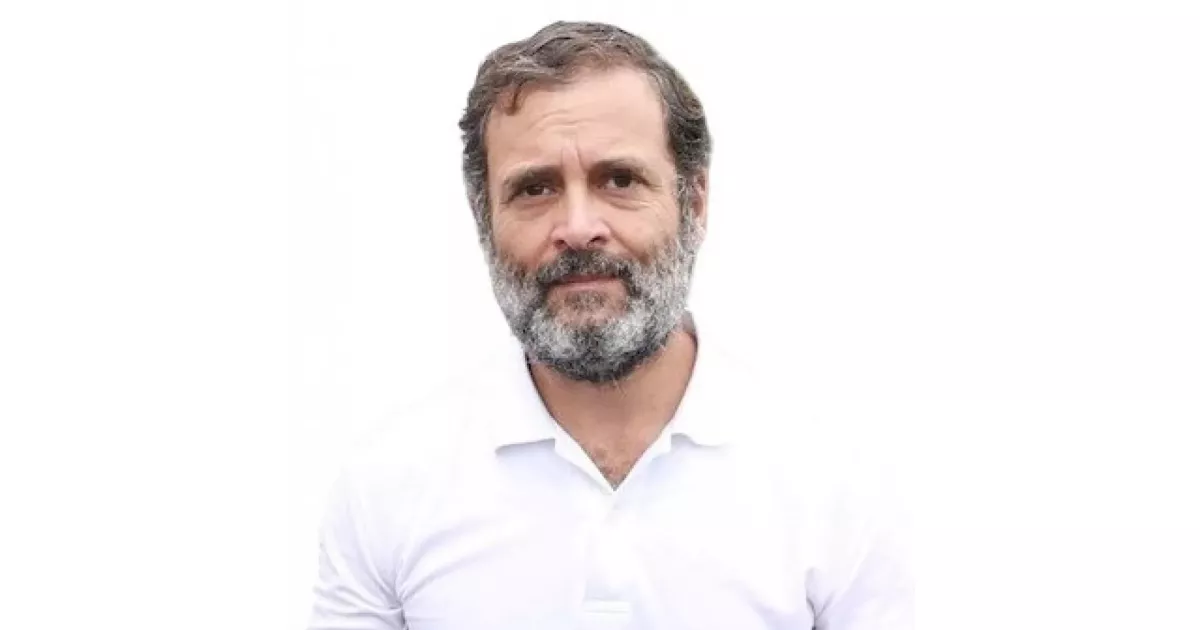Rahul Gandhi is an influential Indian politician and a prominent member of the Indian National Congress party. He currently leads the Opposition in Lok Sabha and represents Rae Bareli, Uttar Pradesh. He has held significant positions within the INC, including party president from 2017 to 2019. Gandhi's political journey includes representing constituencies like Wayanad and Amethi in the past. He actively participates in various organizations, including those honoring his family's legacy, such as the Rajiv Gandhi Foundation. His lineage connects him to the notable Nehru-Gandhi family, further solidifying his place in Indian politics.
1951: Representation of the People Act Enacted
The Representation of the People Act of 1951, a law pertaining to the disqualification of convicted representatives in India, came into effect.
June 1970: Birth of Rahul Gandhi
Rahul Rajiv Gandhi was born on June 19, 1970, at Holy Family Hospital in Delhi.
1981: Rahul Gandhi Attends The Doon School
Rahul Gandhi attended The Doon School in Dehradun from 1981 to 1983.
1983: Rahul Gandhi Leaves The Doon School
Rahul Gandhi left The Doon School in 1983.
October 1984: Assassination of Indira Gandhi and Its Impact on Rahul Gandhi's Life
Following the assassination of Indira Gandhi by Sikhs in her personal guard on October 31, 1984, Rahul Gandhi and his sister Priyanka were home-schooled due to security threats.
December 1988: Rahul Gandhi's Success in National Shooting Competition
Rahul Gandhi participated in the 32nd National Shooting Competition held in New Delhi from December 26, 1988, to January 5, 1989.
January 1989: Rahul Gandhi's Success in National Shooting Competition
Rahul Gandhi participated in the 32nd National Shooting Competition held in New Delhi from December 26, 1988, to January 5, 1989.
July 1989: Rahul Gandhi's Achievements in Shooting
By July 1989, Rahul Gandhi had won eight national awards in shooting.
1991: Assassination of Rajiv Gandhi and Rahul Gandhi's Move to Harvard
Following the assassination of Rajiv Gandhi by the LTTE in 1991, Rahul Gandhi left St. Stephen’s College and moved to Harvard University.
1994: Rahul Gandhi Completes Undergraduate Degree at Rollins College
Rahul Gandhi completed his undergraduate degree at Rollins College in Florida in 1994.
1995: Rahul Gandhi Obtains M.Phil. from Cambridge
Rahul Gandhi obtained a Master of Philosophy (MPhil) in Development Studies from Trinity College, Cambridge, in 1995.
2002: Rahul Gandhi Returns to India, Establishes Technology Consultancy
In 2002, Rahul Gandhi returned to India and established his technology consultancy, Backops Services Private Ltd, in Mumbai.
March 2004: Rahul Gandhi Announces Entry into Politics
In March 2004, Rahul Gandhi announced his entry into politics, declaring his candidacy for the Lok Sabha from Amethi, his father's former constituency.
2004: Rahul Gandhi's Political Debut and Election to Lok Sabha
Rahul Gandhi entered politics and won a seat in the Lok Sabha from Amethi in the 2004 Indian general election.
2004: Gandhi Elected to 14th Lok Sabha
Rahul Gandhi's political journey began in 2004 when he secured a resounding victory in the Amethi constituency, marking his entry into the 14th Lok Sabha.
2004: Gandhi Begins Service as Member of Standing Committees
Starting in 2004, Rahul Gandhi actively contributed as a member of various Standing Committees, including Home Affairs and Human Resource Development, demonstrating his commitment to legislative work.
2006: Rahul Gandhi Serves on Standing Committee on Human Resource Development
Between 2006 and 2009, Rahul Gandhi served as a member of the Standing Committee on Human Resource Development.
2006: Management of Sonia Gandhi's Re-election Campaign
In 2006, Rahul Gandhi and his sister, Priyanka, managed their mother, Sonia Gandhi's, campaign for re-election to Raebareilly. Sonia Gandhi won with a margin of over 400,000 votes.
2006: Gandhi Continues Service in Standing Committees
Rahul Gandhi continued his service in 2006, taking on roles in the Standing Committees on Home Affairs and Human Resource Development, reflecting his active engagement in parliamentary affairs.
September 2007: Appointment as General Secretary of AICC
In September 2007, Rahul Gandhi was appointed as the General Secretary of the All India Congress Committee, the governing body of the Congress party. He was also given charge of the Indian Youth Congress and the National Students Union of India.
2007: Gandhi Elected Chairperson of IYC and NSUI
In 2007, demonstrating his appeal to the younger generation, Rahul Gandhi was elected Chairperson of both the Indian Youth Congress (IYC) and the National Students' Union of India (NSUI).
November 2008: Selection of IYC Think Tank
In November 2008, Gandhi held interviews at his residence to handpick at least 40 people to make up the IYC's think tank.
2008: Gandhi Assumes Role of General Secretary of INC
Rahul Gandhi's influence within the INC grew substantially in 2008 when he assumed the role of General Secretary, signifying his increasing prominence in the party.
July 2009: Prime Minister Singh Hosts Lunch for Gandhi and US Ambassador
In July 2009, Then General Secretary of the All India Congress Committee, Rahul Gandhi, attended a lunch hosted by Prime Minister Manmohan Signh and had a conversation with United States Ambassador to India Timothy J. Roemer.
August 2009: Gandhi's Conversation with US Ambassador on Extremism
In August 2009, Rahul Gandhi had a conversation with Timothy J. Roemer, the United States Ambassador to India, during which he shared his perspective on the potential threat of Hindu extremists.
2009: Rahul Gandhi's Term on Standing Committee on Human Resource Development Ends
Between 2006 and 2009, Rahul Gandhi served as a member of the Standing Committee on Human Resource Development.
2009: Campaign for the 2009 Indian General Election
For the 2009 Indian general election, Gandhi campaigned across India, addressing public rallies and meetings. He retained his Amethi seat by defeating his nearest rival by a margin of over 370,000 votes.
2009: Gandhi Re-elected to 15th Lok Sabha
Gandhi's political momentum continued as he secured re-election in the 2009 general election, solidifying his presence in the 15th Lok Sabha.
2009: Membership Surge in IYC
In 2009, during Gandhi's visit to West Bengal, the state unit of the Youth Congress registered 1 million members. After his visit to Uttar Pradesh, the number of new members in the IYC surged to 150 to 200 new members per day in the same regions.
2009: Comparison to 2009 Election Results
In 2014, The Congress suffered its worst-ever performance at an election and won only 44 seats, compared to the 206 seats won in 2009. The UPA also had its worst-ever performance in elections and won only 59 seats, compared to the 262 seats won in 2009.
2009: Gandhi Serves on Standing Committees During Second Lok Sabha Term
In his second term in the Lok Sabha starting in 2009, Rahul Gandhi served on the Standing Committee on Human Resource Development and the Consultative Committee on Rural Development, further deepening his involvement in policy-making.
2009: Rahul Gandhi Re-elected to Lok Sabha from Amethi
Rahul Gandhi was re-elected to the Lok Sabha from Amethi in 2009.
March 2010: Rahul Gandhi Supports Women's Reservation Bill
In March 2010, Rahul Gandhi expressed his support for the Women's Reservation Bill, which aimed to reserve a third of Lok Sabha and state legislative assembly seats for women. The bill passed in the Rajya Sabha but lapsed before the Lok Sabha could vote on it.
December 2010: WikiLeaks Reveals Gandhi's Comments on Hindu Extremists
In December 2010, WikiLeaks published a United States diplomatic cable that revealed Rahul Gandhi's comments expressing concern about Hindu extremists posing a greater threat to India than Muslim militants, sparking significant controversy and criticism from the BJP.
2013: Gandhi Appointed Vice-President of INC
In 2013, Rahul Gandhi's political trajectory within the INC reached a pivotal point with his appointment as the party's Vice-President, a position he held until its abolishment in 2016.
2013: Rahul Gandhi's Allegations About ISI Recruitment
In 2013, at an election rally in Indore, Rahul Gandhi sparked controversy by claiming a police officer informed him that Pakistan's ISI was attempting to recruit riot-affected youth from the Muzaffarnagar riots. This claim was widely refuted by government agencies and drew criticism from various political parties. Gandhi clarified that he aimed to highlight divisive politics rather than incite communal tensions.
2014: Gandhi Serves on Standing Committees During Third Lok Sabha Term
Continuing his parliamentary journey in 2014, Rahul Gandhi actively participated in the Standing Committee on External Affairs and the Consultative Committee on Ministry of Finance and Corporate Affairs.
2014: Contested 2014 Indian General Election
Gandhi contested the 2014 Indian general election from his constituency, Amethi, and led the election campaign of the Indian National Congress. Gandhi held the Amethi seat by defeating his nearest rival, BJP's Smriti Irani.
2014: Enforcement Directorate Investigation
In 2014, the Enforcement Directorate (ED) initiated an investigation into Swamy's complaint to determine if there were any indications of money laundering. The investigation was closed due to technical reasons.
2014: Rahul Gandhi Leads INC in Indian General Election
Rahul Gandhi led the INC in the 2014 Indian general elections.
2014: Gandhi Elected to 16th Lok Sabha
Rahul Gandhi's political journey continued with his successful election to the 16th Lok Sabha in 2014, marking his third consecutive term as a Member of Parliament.
April 2015: Rahul Gandhi Addresses Kisan Khet Mazdoor Rally
In April 2015, Rahul Gandhi addressed a large rally of farmers and workers in Delhi. During this speech, he criticized Prime Minister Narendra Modi's policies, alleging that Modi's government would favor industrialists over farmers.
December 2015: Dismissal of Appeals and Bail Granted
In December 2015, the Delhi High Court dismissed the appeals of Sonia Gandhi, Rahul Gandhi, and three others, ordering them to appear in person before the trial court. Sonia Gandhi and Rahul Gandhi were granted bail by the trial court on 19 December 2015. In December 2015, the Patiala court granted bail to the five individuals accused in the case.
2016: Exemption from Court Hearings
In 2016, the Supreme Court exempted all five accused individuals (including the Gandhis, Motilal Vora, Oscar Fernandes, and Suman Dubey) from personally attending court hearings but declined to dismiss the ongoing legal proceedings against them.
2016: Position of INC Vice-President Abolished
The position of Vice-President within the INC was abolished in 2016, marking a shift in the party's organizational structure.
December 2017: Rahul Gandhi Elected President of the Indian National Congress
Rahul Gandhi served as the party president of the Indian National Congress from December 2017 to July 2019.
2017: Gandhi Becomes President of INC
Following in the footsteps of his family's political legacy, Rahul Gandhi ascended to the position of President of the INC in 2017, succeeding his mother, Sonia Gandhi.
September 2018: Rahul Gandhi Supports Decriminalization of Homosexuality
In September 2018, when the Supreme Court of India decriminalized homosexual sex by revoking Section 377 of the Indian Penal Code, Rahul Gandhi expressed his support for the decision. He emphasized the importance of personal freedom and the need to protect the constitutional rights of all citizens.
2018: Congress Party's First Majority Win Since 2018
In 2018, The Indian National Congress achieved its first majority win since 2018.
April 2019: Rahul Gandhi's "Modi" Remark Sparks Defamation Case
During an election rally in April 2019, Rahul Gandhi's remark questioning the prevalence of the surname "Modi" among individuals facing accusations of financial misconduct sparked a defamation case. This incident ignited controversy and legal battles.
July 2019: Gandhi Excused from Court Appearance
In July 2019, the Surat court excused Rahul Gandhi from a personal appearance due to short notice, providing a temporary reprieve in the ongoing defamation case.
July 2019: Rahul Gandhi Steps Down as President of the Indian National Congress
Rahul Gandhi stepped down as the president of the Indian National Congress in July 2019.
2019: Led the 2019 Election Campaign
Gandhi led the 2019 election campaign of the Congress party. During his campaign, Gandhi announced "Nyay" (Nyuntam Aay Yojana— Minimum Income Gurantee) Scheme, promising Rs 6,000 each to 20 per cent poorest households. Gandhi also promised to fill 22 lakhs government jobs within one year coming to power at the Centre. Gandhi used the slogan "Chowkidar Chor Hai" as a jibe against Narendra Modi, BJP's prime ministerial candidate during his election rallies.
2019: Gandhi Steps Down as INC President
In 2019, Rahul Gandhi made the decision to step down from his role as INC President.
2019: Gandhi Elected to 17th Lok Sabha
In 2019, Rahul Gandhi's political career took a significant turn as he faced defeat in his long-held Amethi constituency but secured victory in Wayanad, Kerala, granting him entry into the 17th Lok Sabha.
2019: Rahul Gandhi Reiterates Support for Women's Reservation
In 2019, while speaking to students in Chennai, Rahul Gandhi reiterated his support for 33 percent reservation for women in Lok Sabha and state legislative assembly seats, as well as in government jobs. This reaffirmed his commitment to women's empowerment.
2019: Rahul Gandhi Leads INC in Indian General Election, Represents Wayanad
Rahul Gandhi led the INC in the 2019 Indian general elections and represented the constituency of Wayanad, Kerala, from 2019 to 2024.
2019: Gandhi Serves on Standing Committees During Fourth Lok Sabha Term
Throughout his fourth term in the Lok Sabha, which began in 2019, Rahul Gandhi served on the Standing Committee on Defence, demonstrating his involvement in matters of national security.
December 2020: Dismissal of Petition to Summon Gandhis
In December 2020, the Delhi court dismissed a petition filed by then-BJP leader Subramanian Swamy seeking to summon Rahul and Sonia Gandhi and others as accused in the National Herald case.
2020: Rahul Gandhi Criticizes Draft Environment Impact Assessment (EIA) 2020
In 2020, Rahul Gandhi publicly criticized the draft Environment Impact Assessment (EIA) 2020, characterizing it as "dangerous" and warning of its long-term negative consequences. He argued that the EIA would harm communities directly affected by environmental damage.
June 2021: Gandhi Maintains Innocence in Defamation Case
On June 2021, Rahul Gandhi appeared before the Surat Court, where he reiterated his stance, stating that his intention was not to defame any community but to raise concerns about alleged financial irregularities.
September 2022: Bharat Jodo Yatra Commences
In September 2022, Rahul Gandhi initiated the Bharat Jodo Yatra, a nationwide march aimed at promoting unity and solidarity across India. The yatra involved traveling across the country, addressing rallies, and engaging with citizens.
2022: Congress Wins Majority in Himachal Pradesh Assembly Election
During the Bharat Jodo Yatra in 2022, The Indian National Congress won a majority in the Himachal Pradesh Legislative Assembley election.
January 2023: Bharat Jodo Yatra Concludes
On January 2023, the Bharat Jodo Yatra, a five-month-long journey spanning thousands of kilometers, concluded in Srinagar. The yatra, led by Rahul Gandhi, aimed to unite the nation and highlight issues like economic development and social justice.
March 2023: Gandhi Convicted in Defamation Case, Disqualified from Parliament
In March 2023, Rahul Gandhi faced conviction in the defamation case, resulting in a two-year imprisonment sentence and disqualification from his parliamentary position. However, he appealed the verdict, leading to a stay on the sentence.
2023: The National Herald Case
The National Herald case revolves around allegations of financial irregularities and misuse of funds related to the National Herald newspaper. The case garnered attention when former BJP leader Subramanian Swamy filed a complaint accusing Sonia Gandhi, Rahul Gandhi, and five other Congress party leaders of cheating and misappropriating funds associated with the National Herald.
March 2024: Bharat Jodo Nyay Yatra Commences
Rahul Gandhi led the Bharat Jodo Nyay Yatra from January to March 2024, marking his second significant journey across India. This time, the yatra adopted a hybrid mode, further amplifying its message of unity and justice.
June 2024: Rahul Gandhi Becomes Leader of the Opposition in Lok Sabha
In June 2024, Rahul Gandhi became the 12th Leader of the Opposition in Lok Sabha and the member of the Lok Sabha for Rae Bareli, Uttar Pradesh.
2024: Rahul Gandhi Leads INC to Official Opposition Status, Wins Rae Bareli Seat
Before the 2024 general elections, Rahul Gandhi led campaigns like the Bharat Jodo Yatra, helping the INC secure Official Opposition status. He won the Rae Bareli seat, succeeding his mother, Sonia Gandhi.
2024: Gandhi Elected from Wayanad and Rae Bareli, Retains Rae Bareli Seat
Rahul Gandhi secured victories in both the Wayanad and Rae Bareli constituencies in the 2024 general election. Following this, he chose to retain his Rae Bareli seat in the 18th Lok Sabha, while his sister Priyanka Gandhi contested in the subsequent Wayanad by-election.
Mentioned in this timeline
India officially the Republic of India is located in South...

A tank is an armored fighting vehicle designed for front-line...
Florida a southeastern U S state boasts the longest coastline...
Pakistan officially the Islamic Republic of Pakistan is a South...

A supreme court or court of last resort is the...

Justice in its broadest sense is the concept of treating...
Trending

7 days ago James Gunn Plans Superman Sequel Shooting Soon; Teases 'Peacemaker' Role in DCU.
7 days ago Motorcycle crash in Beloit on Cranston Road: Police investigate single-vehicle incident.

7 days ago Zion: Influencers' Storm, Hidden Trail & East Mesa Hike, Views and Fewer Crowds
7 days ago Qatar Airways and Accenture partner for AI-driven aviation excellence, creating 'AI Skyways'.

7 days ago Ketel Marte's Absence and Day Off Requests Cause Frustration Among Diamondbacks Teammates
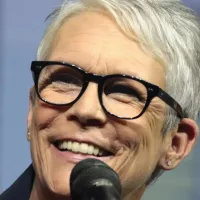
8 days ago Jamie Lee Curtis Celebrates 'Freakier Friday' with Fan Event and Lookalike Screening
Popular
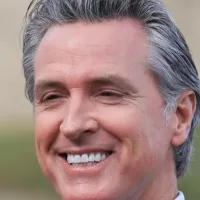
Gavin Newsom is an American politician and businessman currently serving...
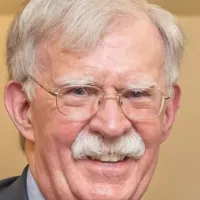
John Bolton is an American attorney diplomat Republican consultant and...

Jupiter is the fifth and largest planet from the Sun...
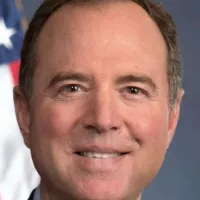
Adam Schiff is an American politician and lawyer currently serving...

Steve Irwin the Crocodile Hunter was an influential Australian zookeeper...

Donald John Trump is an American politician media personality and...
